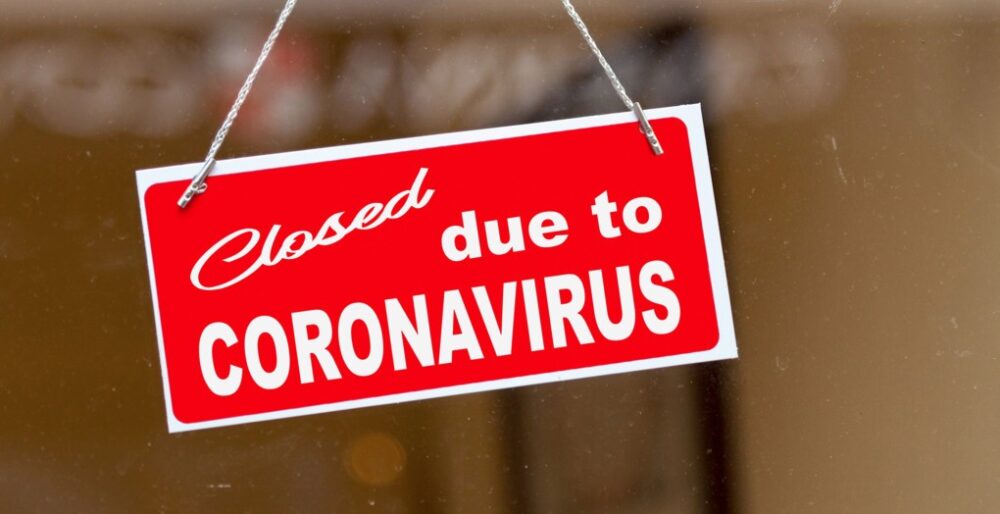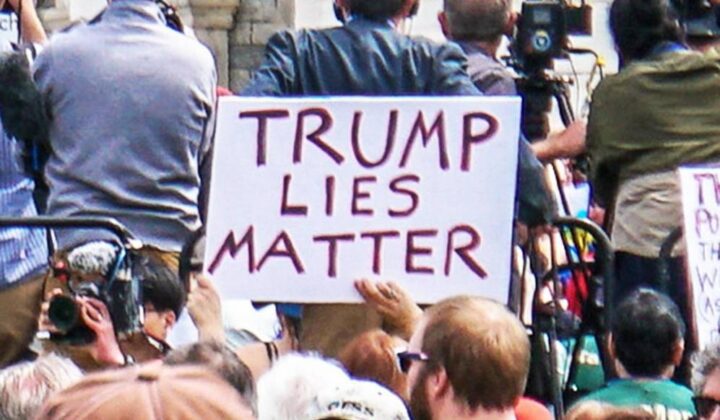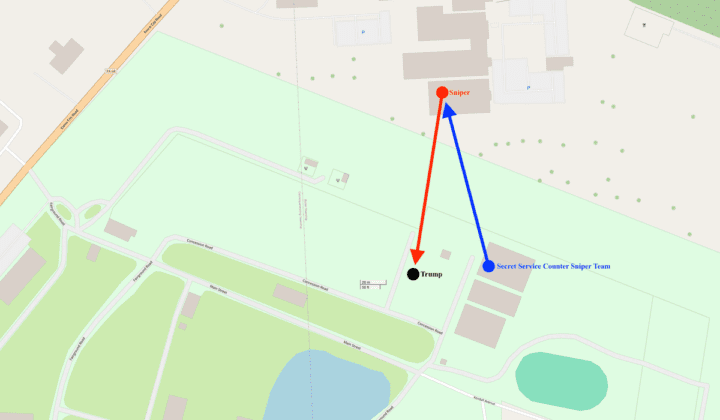In March alone, more than 10 million Americans applied for unemployment benefits. Compared to the 2008 recession, the rate of job losses stemming from the pandemic has been even worse. According to The Atlantic’s Derek Thompson, “The labor market is contracting at the rate of one Great Recession per 10 days.” And Justin Wolfers, an economist at the University of Michigan, suggests that the unemployment rate is around 13%, the highest level since the Great Depression.
The pandemic will likely affect every sector of the economy, and possibly even wipe out entire industries absent government intervention. So far, oil and gas, food, transportation, and travel are among the hardest hit sectors.These facts paint a dire picture for the future of our economy in both the short and long term. What happens if 4, 6, or even 8 months from now people still cannot return to work? What happens if we must remain at home until we have a vaccine, which could be 18 months away? These are very important questions, but what doesn’t seem to be discussed much is the impact of these problems on our democracy itself.
- What political issues might arise from the economic collapse? What happens, from a political point of view, when large swaths of the population are left behind? The answer is more polarization and more radicalization. The more people feel vulnerable and marginalized, the more likely they are to buy into extreme solutions, as we frequently see in history and as we saw more recently in the aftermath of the 2008 financial collapse. A Harvard Business Review article notes how in the years after the financial crisis, the US saw a sharp increase in levels of polarization, and that the economic recovery that followed didn’t ameliorate it. More troubling than polarization, however, is the extent to which severe economic crises can breed conspiratorial thinking, anti-semitism, and xenophobia, as people look for scapegoats to their often-desperate economic situations. And as we have seen in recent years, this kind of thinking can often turn violent.
- How does the government’s response reflect on our democracy?There are serious questions over whether or not the stimulus bill does enough to address the concerns of average Americans, but an issue of perhaps equal importance is congressional oversight over the stimulus. This was an area of significant contention during negotiations, but Congress ended up aligning on a bipartisan bill that included clear oversight provisions. However, when the President signed the bill, he included a statement saying that the administration would disregard the sections of the law mandating that a “special inspector general for the program [make] regular reports to Congress to ensure legislative oversight.” And more troublingly, this week, President Trump removed the Inspector General who was slated to oversee the two trillion dollars in stimulus money. A new watchdog is expected to be appointed to oversee the stimulus money, but this action raises significant questions about the extent to which the executive branch will ensure transparency in the disbursement of hundreds of billions of dollars. Our democracy only works if the people believe that their leaders are serving their interests rather than their own. But how can we be sure without transparency in government?

Cuban Government Sends its Doctors to Fight COVID-19 Overseas, but There’s Reason to Be Concerned
The government of Cuba has sent its doctors abroad to help address the Coronavirus pandemic in at least 14 countries, including Italy and Andorra. This is in keeping with Cuba’s 60-year long policy of “medical internationalism,” where the authoritarian Communist state has sent medical professionals overseas. Although some might argue that these acts are a legitimate extension of a nation’s foreign policy, and the Cuban government would surely argue that it does this for humanitarian purposes, it is difficult to reconcile the humanitarian motives of the missions with the disturbing way in which Cuban medical professionals are treated by their own government. The Cuban government keeps three quarters of the exported doctors’ salaries, often while being paid by the states receiving the doctors. It also confiscates the doctors’ passports to keep them from seeking asylum in freer and more prosperous democratic nations. The US government classifies this as human trafficking and for many years has pressured other states, with some success, to reject Cuban medical missions.
- What is Cuba’s history with this kind of foreign policy?Ever since it became a dictatorship under Fidel Castro in the late 1950s, Cuba has made extensive efforts to forge alliances with sympathetic countries in order to circumvent the US government’s policy of isolating the regime. During the Cold War, Cuba sent teachers, doctors, and even soldiers to post-colonial Africa to aid left-wing, anti-colonial movements. Despite Cuba’s track record of repression, their extensive involvement in Africa won them many hearts and minds, including that of Nelson Mandela. And more recently since the end of the Cold War, Cuba has sent doctors to aid the social programs of friendly leftist governments in Latin America, including Ecuador, Venezuela, Nicaragua, Brazil, and Bolivia. Cuba’s current medical missions during the pandemic must be understood as part and parcel of these previous examples of soft power diplomacy. The Communist regime is doing what it can to varnish its image internationally in order to ensure its survival, to the detriment of its people. In fact, Cuba’s focus on exporting medical professionals has led to strains on its domestic health care capacity.
- Should countries like Italy reject Cuban doctors?One can argue that during a pandemic, states should do all they can to protect the health of their people, even if that involves temporarily compromising core values like anti-authoritarianism. Cuba may be a dictatorship, but Italy is arguably picking the lesser of two evils by accepting its aid to save the lives of its citizens. Under the extraordinary pressure of the COVID-19 outbreak, countries are desperate to find any way to ease the burden on their strained health care systems. Ultimately, sovereign nations are empowered to make this decision based on their own judgements.

Local Governments Step up When National Governments Fail
Japan, much like the rest of the world, is not immune to the novel coronavirus. On Monday, after much criticism from regional governors over perceived inaction, Japanese Prime Minister Shinzo Abe finally declared a national state of emergency. However, until the national government took appropriate action, local governments in Japan had stepped up to meet the challenge themselves. The most striking example of this is that of Wakayama, a local district in the Kansai region of Japan, an area known for its independent streak that runs counter to Japan’s otherwise rule-respecting culture.
Realizing that the national government was not up to the task, local governor Yoshinobu Nisaka decided to put matters into his own hands to aggressively combat the pandemic. National government guidelines recommended testing only those who either had been in China recently or had contact with a Chinese person testing positive for the virus. Nisaka, however, went beyond these guidelines, testing everyone who could have come in contact with infected patients. Additionally, he partnered with other neighboring districts to expand testing sites, labs, and medical supplies. Nisaka’s actions have largely contained the outbreak, with only a few new cases popping up here and there, and his success has been dubbed the “Wakayama Model.”
- How is this a win for democracy? Under an authoritarian regime, a place like Wakayama would be punished or crushed for its independence, similar to the way China has been crushing Hong Kong’s democratic spirit. A strongman could see the local governor’s response as a threat to his power or a blow to his image as the region and its officials tackle the problem more effectively than he can. However, a properly functioning democratic system encourages local governments to exercise creativity, innovation, and independence as a way to remain accountable to their people. Imagine how different the world might look right now if Wuhan had sought to contain the pandemic instead of trying to cover it up?
- Are there other examples of local governments stepping up to fight the pandemic in response to failures at the national level?In Brazil, President Jair Bolsonaro called the virus a “measly cold” and resisted aggressive lockdown measures to fight the pandemic. Brazilan state governments, however, defied Bolsonaro’s calls to reopen schools and businesses, and the governor of Sao Paulo even threatened to sue the federal government if it “tried to interfere with his efforts to combat the virus.” And in the United States, President Trump had expressed a similar dismissive attitude to the pandemic. It took the administration 70 days to treat the virus as a serious threat and implement strict emergency measures and self-quarantine guidelines. Meanwhile, individual states have filled the leadership void and enforced aggressive social-distancing policies. New York Governor Andrew Cuomo (D) and Ohio governor, Mike Dewine (R) have demonstrated particularly strong leadership during this crisis, proving that leadership is a non-partisan character trait available to all public officials, regardless of their political leanings.

Many American Companies Step up to Help
Major companies are stepping up to address our public health crisis. GM and Ford, for example, are shifting some plants to produce ventilators to fulfill government orders. GM plans to make 10 thousand ventilators per month while Ford hopes to make 100 thousand over the next three months. And they are not planning to seek a profit beyond covering the expenses of production. Apple has donated 20 million masks so far and plans to manufacture 1 million face shields a week, while Brooks Brothers expects to produce 150 thousand masks a day. During times of crisis, it is imperative that the different elements of civil society fulfill their civic responsibility, working together to—simply put—help. And in many important cases, that is what is happening with American companies during this pandemic.
- Is there a precedent for this kind of assistance from the private sector during a crisis? The mobilization of private industry to address a national crisis is not unprecedented in American life. For example, during WWII, private companies became an essential part of the war effort. The government devised an arrangement where it pledged to buy all the military goods produced, even if they were not all eventually used. This incentivized private companies to shift production to meet war needs because the government picked up the risk. Although there were often tensions between businesses and the Roosevelt administration, the effort fulfilled its objectives. Over 5 years, US industry produced roughly 300 thousand planes, 3.6 million trucks, 100 thousand tanks, and 44 billion rounds of ammunition. With this history as a source of pride and inspiration, the private and public sectors can come together to address the crisis that affects all of us.





